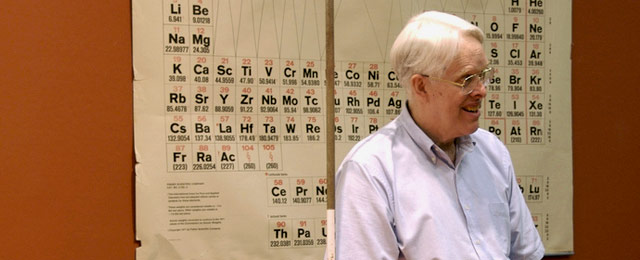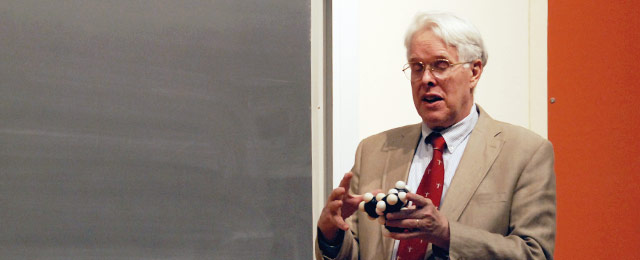Online courses directory (423)
This course will take students on an extraordinary journey – the beginning of a massive transformation of humankind. Nothing remotely like this had ever happened in the billions of years of evolution on Earth. It was enabled by technology, but many other factors were part of its driving force.
There are over 100 million horses, donkeys and mules in the world today and owners of these animals can be found on almost every continent and in almost every society. The Horse Course will cover many unique aspects of equine ownership and touch upon the science behind many of today’s management practices.
This course will look at how intelligent and innovative use of the ocean can sustainably deliver the key resources necessary to help meet some of the great challenges faced by humanity.
This course enables students to develop their understanding of research methods, and confidence in designing a research project, choosing and executing appropriate methods, and assessing its intellectual/academic rigour.
In this second semester course, we will cover a wide-ranging field of topics, learning everything from the equation that made Einstein famous to why you can’t replace a dead car battery with a household battery. In General Chemistry I (CHEM101 [1]), we studied the basic tools you need to explore different fields in chemistry, such as stoichiometry and thermodynamics. This second-semester course will cover several of the tools needed to study chemistry at a more advanced level. We will identify the factors that affect the speed of a reaction, learn how an atom bomb works on a chemical level, and discover how chemistry powers a light bulb. Topics in advanced organic and inorganic chemistry courses will build upon what you learn in this class. We will end with discussion of organic chemistry, a topic that is as important to biology as it is to chemistry. [1] http:///courses/chem101/…
Organic chemistry is a branch of chemistry that focuses on a single element: carbon! Carbon bonds strongly with other carbon atoms and with other elements, forming numerous chain and ring structures. As a result, there are millions of distinct carbon compounds known and classified. The vast majority of the molecules that contain carbon are considered organic molecules, with few debatable exceptions such as carbon nanotubes, diamonds, carbonate ions, and carbon dioxide. Carbon is central to the existence of life as it is an essential component of nucleic acids (DNA and RNA), sugars, lipids, and proteins. A well-rounded student of science must take courses in organic chemistry to understand its application to various topics, such as the study of polymers (plastics and other materials), hydrocarbons, pharmaceuticals, molecular biology, biochemistry, and other life sciences. In the first semester of organic chemistry, you will learn the basic concepts needed to understand the three-dimensional structu…
This course is a continuation of CHEM103 [1]: Organic Chemistry I. As you progress through the units below, you will continue to learn the different chemical reactions characteristic of each family of organic compounds. We will focus on the four most important classes of reactions: electrophilic substitution at aromatic rings, nucleophilic addition at carbonyl compounds, hydrolysis of carboxylic acids, and carbon-carbon bond formation using enolates. The enolate portion of this course will cover the reactivity of functional groups. We will also look at synthetic strategies for making simple, small organic molecules, using the knowledge of organic chemistry accumulated thus far. At the end of this course, you will possess the tools you need to plan the synthesis of fairly complicated molecules, like those used in pharmaceutics. From the perspective of a synthetic organic chemist, the two most challenging aspects of synthesizing drug molecules are the incorporation of "molecular rings" (rings of 5…
Physical Chemistry II is quite different from Physical Chemistry I. In this second semester of the Physical Chemistry course, you will study the principles and laws of quantum mechanics as well as the interaction between matter and electromagnetic waves. During the late 19th century and early 20th century, scientists opened new frontiers in the understanding of matter at the molecular, atomic, and sub-atomic scale. These studies resulted in the development of quantum physics, which nowadays is still considered one of the greatest achievements of human mind. While present day quantum physics “zooms in” to look at subatomic particles, quantum chemistry “zooms out” to look at large molecular systems in order to theoretically understand their physical and chemical properties. Quantum chemistry has created certain “tools” (or computational methods) based on the laws of quantum mechanics that make it theoretically possible to understand how electrons and atomic nuclei interact with each other…
Learn how the nervous system produces behavior, how we use our brain every day, and how neuroscience can explain the common problems afflicting people today.
This college-level course gives students a thorough understanding of genetic inheritance, and enables them to apply this understanding to real-world issues, both personal and societal. This is Part 2 of a two-part course.
Volcanic eruptions are a powerful demonstration of the energy of the Earth´s interior. A materials-based understanding of the evolution of erupting systems provides a quantitative physico-chemical description of the nature of lava and magma and the role of experiments in quantifying the eruptive process.
Can we say that plants have senses? You will learn how plants sense their environment and how scientists study plant senses. You will be exposed to both classic and modern experiments in plant biology, and may even start to question what defines us as humans.
Inorganic chemistry is a division of chemistry that studies metals, their compounds, and their reactivity. Metal atoms can be bound to other metal atoms in alloys or metal clusters, to nonmetal elements in crystalline rocks, or to small organic molecules, such as a cyclopentadienyl anion in ferrocene. These metal atoms can also be part of large biological molecules, as in the case of iron in hemoglobin (oxygen-carrier protein in the blood). In this course, you should not think of metals as you encounter them in your daily life (i.e., when you pick up a steel knife, a can of soda, or a gold necklace). Instead, you should think of a metal as the central atom or ion in a molecule surrounded by other ions or small molecules called ligands. Depending on what these ligands are, the metal-containing compound can acquire very different physical and chemical properties. For example, when magnesium (in its ionic state) is bound to carbonate ions, it forms solid crystalline rocks, as in the dolomite rocks (c…
Analytical chemistry is the branch of chemistry dealing with measurement, both qualitative and quantitative. This discipline is also concerned with the chemical composition of samples. In the field, analytical chemistry is applied when detecting the presence and determining the quantities of chemical compounds, such as lead in water samples or arsenic in tissue samples. It also encompasses many different spectrochemical techniques, all of which are used under various experimental conditions. This branch of chemistry teaches the general theories behind the use of each instrument as well analysis of experimental data. This course begins with a review of general chemistry and an introduction to analytical terminology. You will learn terms relevant to the process of measuring chemical compounds, such as sensitivity and detection limit. The course continues with a unit on common spectrochemical methods, followed by an extension of these methods in a unit on atomic spectroscopy. These methods allow…
Biochemistry is the study of the chemical processes and compounds, such as cellular makeup, that bring about life in organisms. It is a combination of multiple science fields; you can think of it as general and cell biology coupled with organic and general chemistry. Although living organisms are very complex, from a molecular view, the material that constitutes “life” can be broken down into remarkably simple molecules, much like the breakdown of our English language to the English alphabet. Although there exists thousands upon thousands of molecules, they all breakdown into four core components: nucleic acids, amino acids, lipids, and carbohydrates. As we can make hundreds of thousands of words from just 26 letters, we can make thousands of different biomolecules from those 4 components. For example, the human genome, containing the necessary information to create a human being, is really just one very long strand of 4 different nucleotides. This course is structured around that approach, so…
Remember that organic chemistry is the discipline that studies the properties and reactions of organic, carbon-based compounds. This course is intended to be taken after the first two semesters of organic chemistry. Many of the topics within this outline have been covered in the first two semesters of organic chemistry; however, this course will explore these topics in much greater depth. It is important to make sure that you have a good grasp of the concepts from earlier organic chemistry courses before moving on to this course. We begin by studying a unit on ylides, benzyne, and free radicals. Many free radicals affect life processes. For example, oxygen-derived radicals may be overproduced in cells, such as white blood cells that try to defend against infection in a living organism. In the first unit, you will learn about free radicals, including oxygen-containing compounds. Afterward we move into a comprehensive examination of stereochemistry, as well as the kinetics of substitution and el…
This course is designed to help you get started as a behavioral science student, become familiar with the academic programs within the field, and prepare you for your first meeting with your academic advisor or academic counselor once you make your decision about which program to pursue.
This is the first semester in a two-semester introductory course focused on current theories of structure and mechanism in organic chemistry, their historical development, and their basis in experimental observation. The course is open to freshmen with excellent preparation in chemistry and physics, and it aims to develop both taste for original science and intellectual skills necessary for creative research.
This is a continuation of Freshman Organic Chemistry I (CHEM 125a), the introductory course on current theories of structure and mechanism in organic chemistry for students with excellent preparation in chemistry and physics. This semester treats simple and complex reaction mechanisms, spectroscopy, organic synthesis, and some molecules of nature.
Advanced Inorganic Chemistry is designed to give you the knowledge to explain everyday phenomena of inorganic complexes. You will study the various aspects of their physical and chemical properties and learn how to determine the practical applications that these complexes can have in industrial, analytical, and medicinal chemistry. This course will begin with the discussion of symmetry and point group theory and its applications in the field of vibrational spectroscopy. We will then study molecular orbital (MO) theory specifically applied to metal organic complexes. MO theory will be critical in understanding the following: 1) the relative position of ligands in the spectrochemical series, 2) the electronic transitions and related selection rules, and 3) the application of spectroscopy of metals. The course will then move onto the study of the oxidation states of transition metals and their redox properties. A firm grasp of the chemical redox properties of transition metals is critical to understanding thei…
Trusted paper writing service WriteMyPaper.Today will write the papers of any difficulty.












